Plastics
Quality Made Us Global
Injection Molding
Global Plastics Injection Molding Plastics and Materials
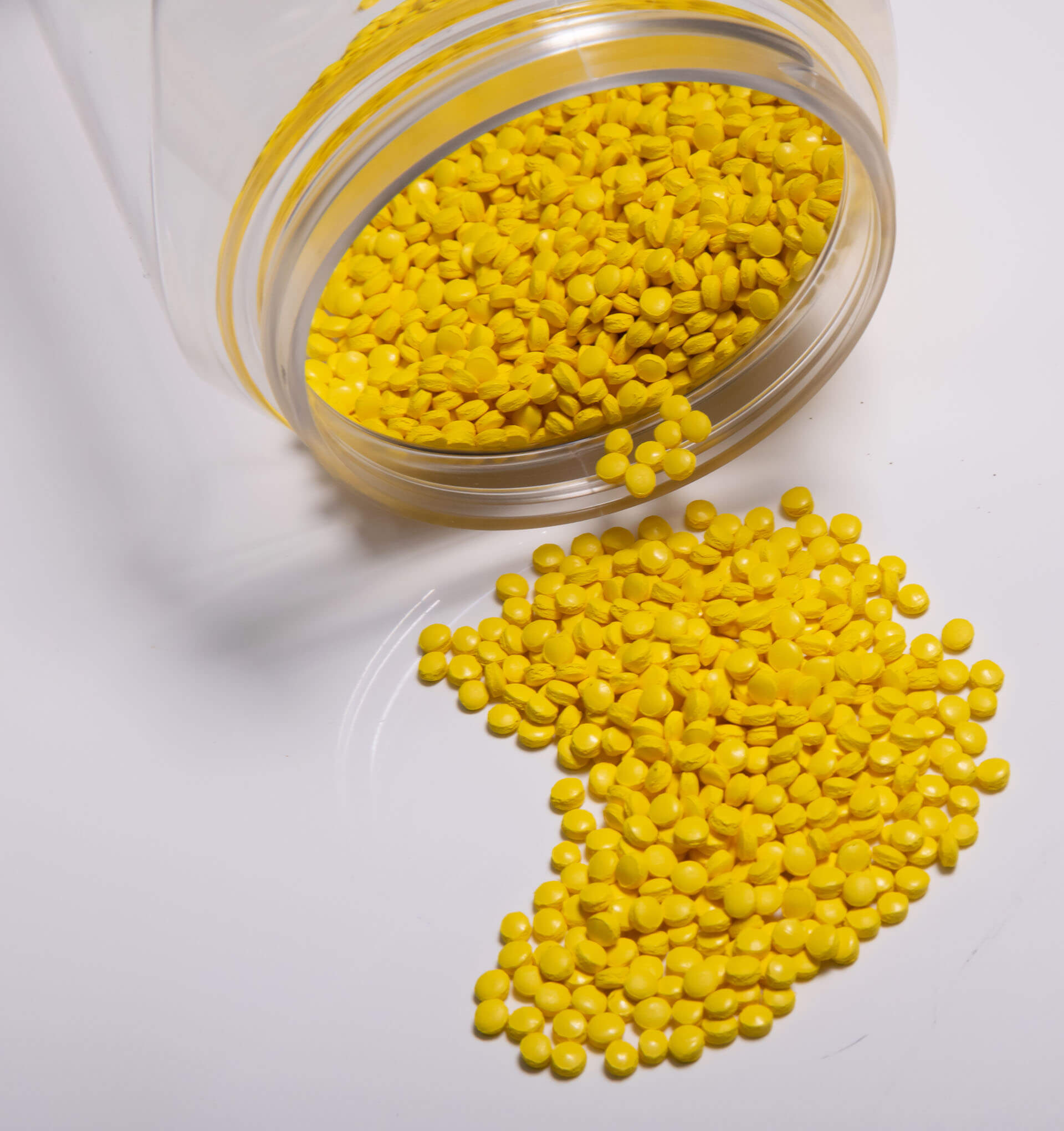
The Optimal Material for Each Injection Molding Project
Properties and Characteristics of Plastic Resins for Injection Molding
Each variable or characteristic listed below is important to consider in the plastic materials selection process in order to match the right formulation to a client’s injection molding project:
Hardness
Hardness or “Shore hardness” is a measure of the stiffness of a plastic resin. The higher the measurement on a durometer scale, then the higher the resistance of the plastic resin to indentation. What level of hardness a plastic part or component requires depends on the application environment in which it will be used and the level of abrasion to which it will be exposed.
Flexibility
Flexibility of the plastic material is a critical parameter to consider as many plastic parts and components require both hardness for durability along with flexibility. Higher flexibility means the plastic resin can withstand more stress and load before breaking. But don’t confuse flexibility with softness. Just because a thermoplastic material is considered soft doesn’t mean it also has flexibility.
Weight
Weight: A thermoplastic resin’s weight depends on the density of the polymer. Many injection molding projects include design requirements with an emphasis on making a final product as lightweight as possible.
Impact Strength
Impact Strength: Also called impact toughness, many assume high hardness would also mean high impact strength, but this is not always the case. The measurement for impact strength is specifically about how well the material in question withstands a sudden, sharp impact before failing (breaking, cracking, fracturing). This kind of blow causes the material to absorb energy and the property is measured by an Izod test or a Charpy test.
Tensile Strength
Tensile Strength: This measures the material’s resistance to breaking while under tension, which in turn is a function of stress and strain. A tensile tester is used to measure how much force can be applied before a fracture occurs.
Elasticity
Elasticity: This measures to what extent the material can be elongated before breakage occurs and is typically presented as a percentage. Some of the most desirable thermoplastics are those that combine high tensile strength and high elasticity.
Chemical Resistance
Chemical Resistance: Plastic resins can display a wide range of resistance to various bases, acids, solvents, chlorinated hydrocarbons, and so on.
Heat Deflection/Tolerance
Heat Deflection/Tolerance: The heat resistance capability of a thermoplastic material can be measured by heat deflection temperatures (HDT) and melt temperatures but is most commonly displayed as the glass transition temperature (Tg) of the material, meaning the temperature at which it begins to soften.
Water Absorption
Water Absorption: A plastic polymer is capable of absorbing water from its environment, and measuring this property is important if plastic parts or components will be submerged or frequently exposed to water. Water absorption over time can result in irreversible degradation of the polymer structure. Testing is performed with exposure to humidity, immersion in water, and immersion in boiling water. As the material absorbs water, it becomes heavier.
Common Thermoplastics Used for Injection Molding
There are now many thousands of different thermoplastic options available for an ever-expanding range of applications across markets in every industry. An exhaustive listing of plastic resins here would be impossible, but the following are worth highlighting in terms of their versatility and frequent use within injection molding processes and applications. These materials are almost always referred to by their shorthand acronym:
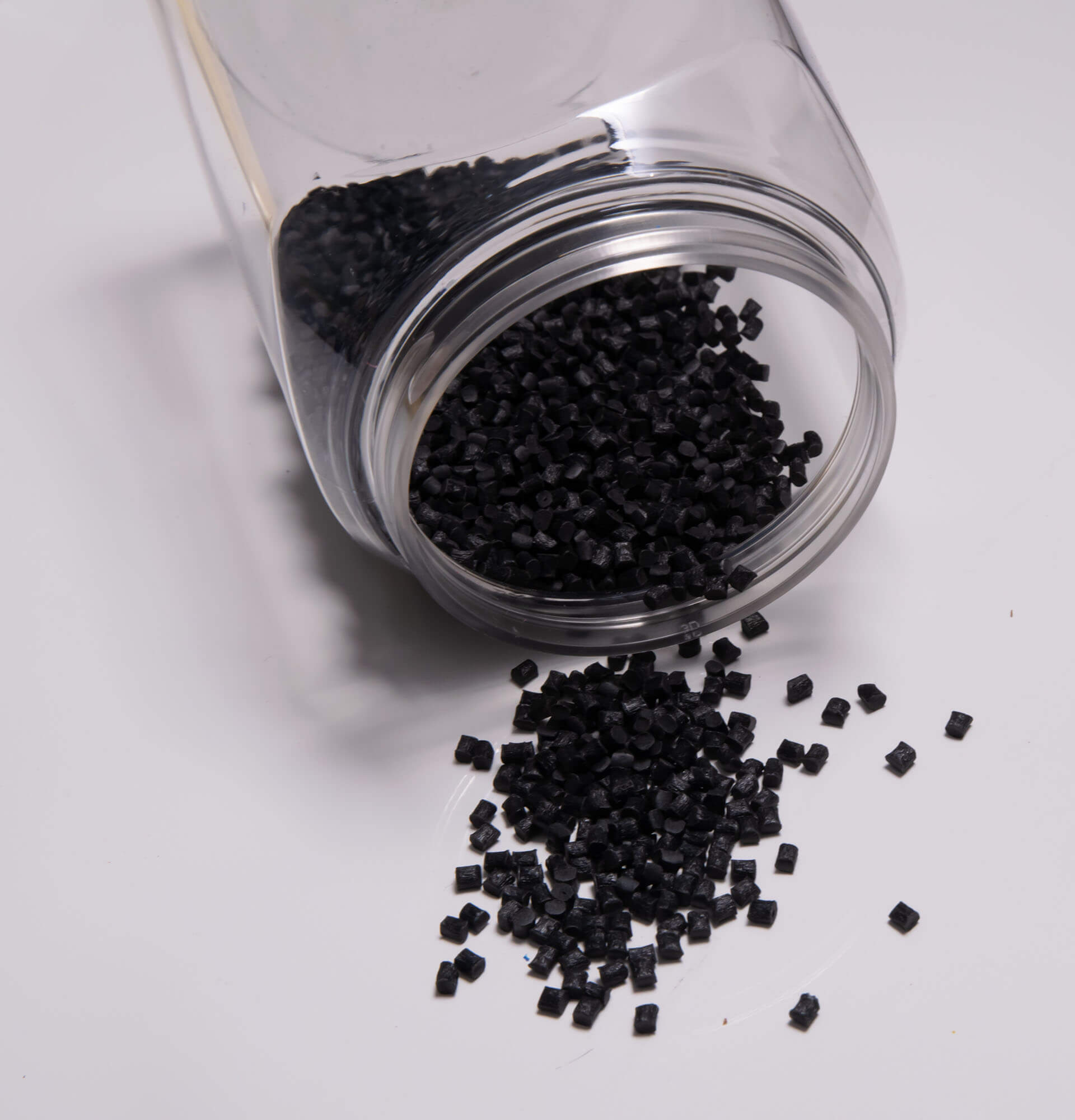
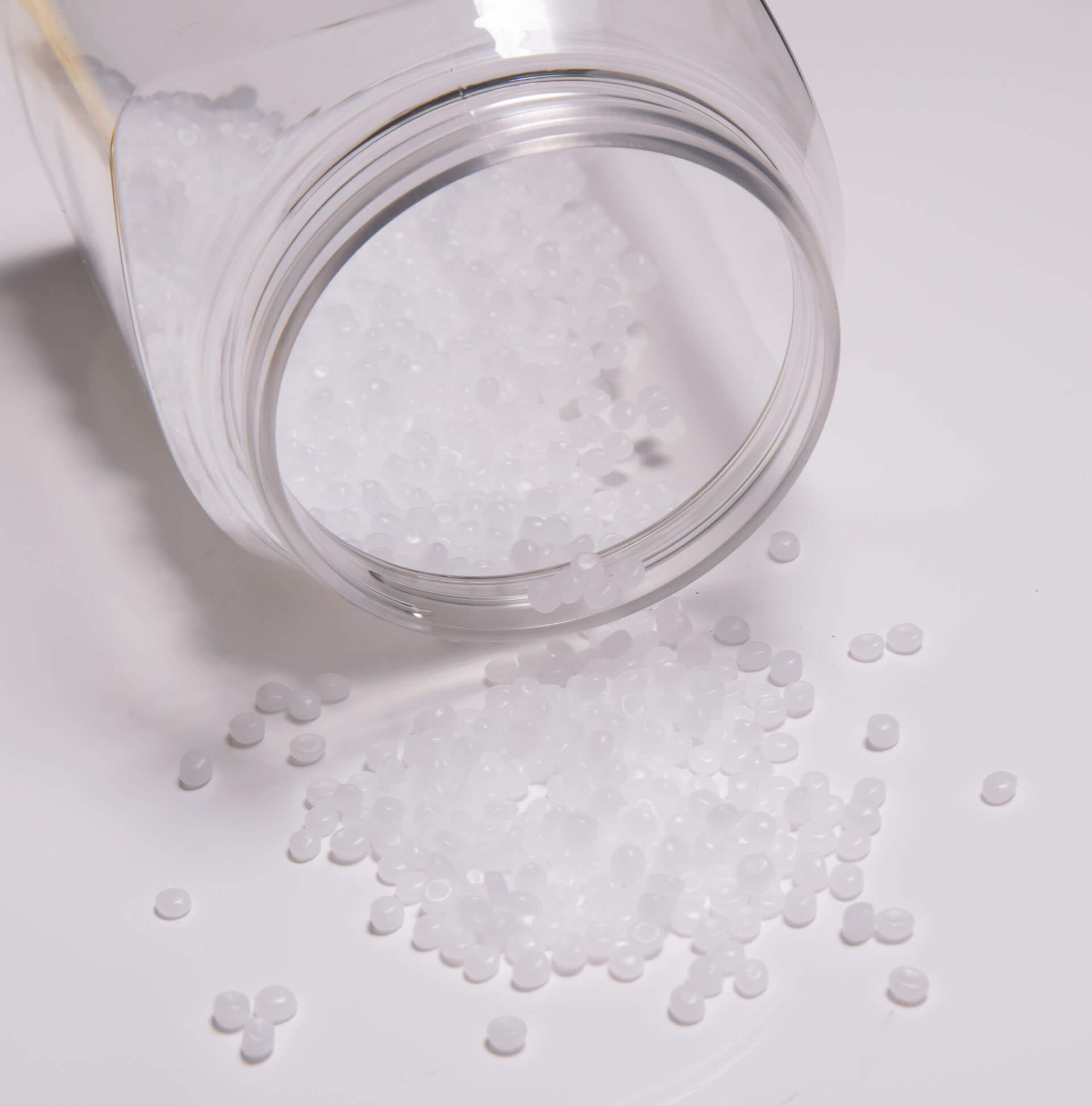
ABS: Acrylonitrile butadiene styrene tends to be strong and rigid, is resistant to a variety of bases and acids, but some solvents and chlorinated hydrocarbons can damage the material. These characteristics make ABS a common choice for a wide range of applications requiring a thermoplastic polymer with its mechanical properties. Some usage examples include toys (LEGO® bricks), components for medical devices and biomedical applications, keyboard keycaps, plastic musical instruments such as recorders, automotive components (especially automobile trim and bumpers), inhalers and nebulizers, enclosures for electrical and electronic assemblies and a huge array of other household and consumer goods. Note that ABS is damaged by ultraviolet light over time. Regarding flame resistance, ABS is flammable at high temperatures. When it gets hot enough to melt and then boil, its vapors will burst into intense hot flames. It has no true melting point because it is amorphous; the useful upper temperature range is around 176°F (80°C).
PE: Polyethylene is often used to make flexible piping for use in pressurized water systems, but not for hot water. PE can be further classified into low-density polyethylene (LDPE) and high-density polyethylene (HDPE). LDPE is tough, relatively soft, and has good chemical resistance. HDPE is stiff, hard, and chemical resistant, making it good for casing applications for household goods. Snap fits are common in polyethylene moldings and require undercuts that can be easily ejected from molds as long as they’re sized correctly. While drilling, turning, and cutting can be performed on all grades, machinability is better with high-density polyethylene compared to low-density polyethylene.
PP: Polypropylene is considered lightweight, of moderate hardness/softness (scratches fairly easily), can withstand temperatures up to 180°F (82°C), and has high chemical resistance to acids, bases, and many solvents. Because it is a highly flexible thermoplastic, it’s good for both industrial and consumer applications. Polypropylene is often used for medical devices and laboratory equipment, kitchen utensils, automotive manufacturing, furniture assembly, and some aerospace applications. This is a resin commonly used for many different snap fit closures that will be used repeatedly over time.
PC: Polycarbonate is an amorphous material with good temperature and flame resistance along with electrically insulating properties, which is what makes it well-suited for the production of electronic components, medical devices and components, and light fixtures. It is considered a high-quality resin, and one of the strongest plastic injection molding materials available.
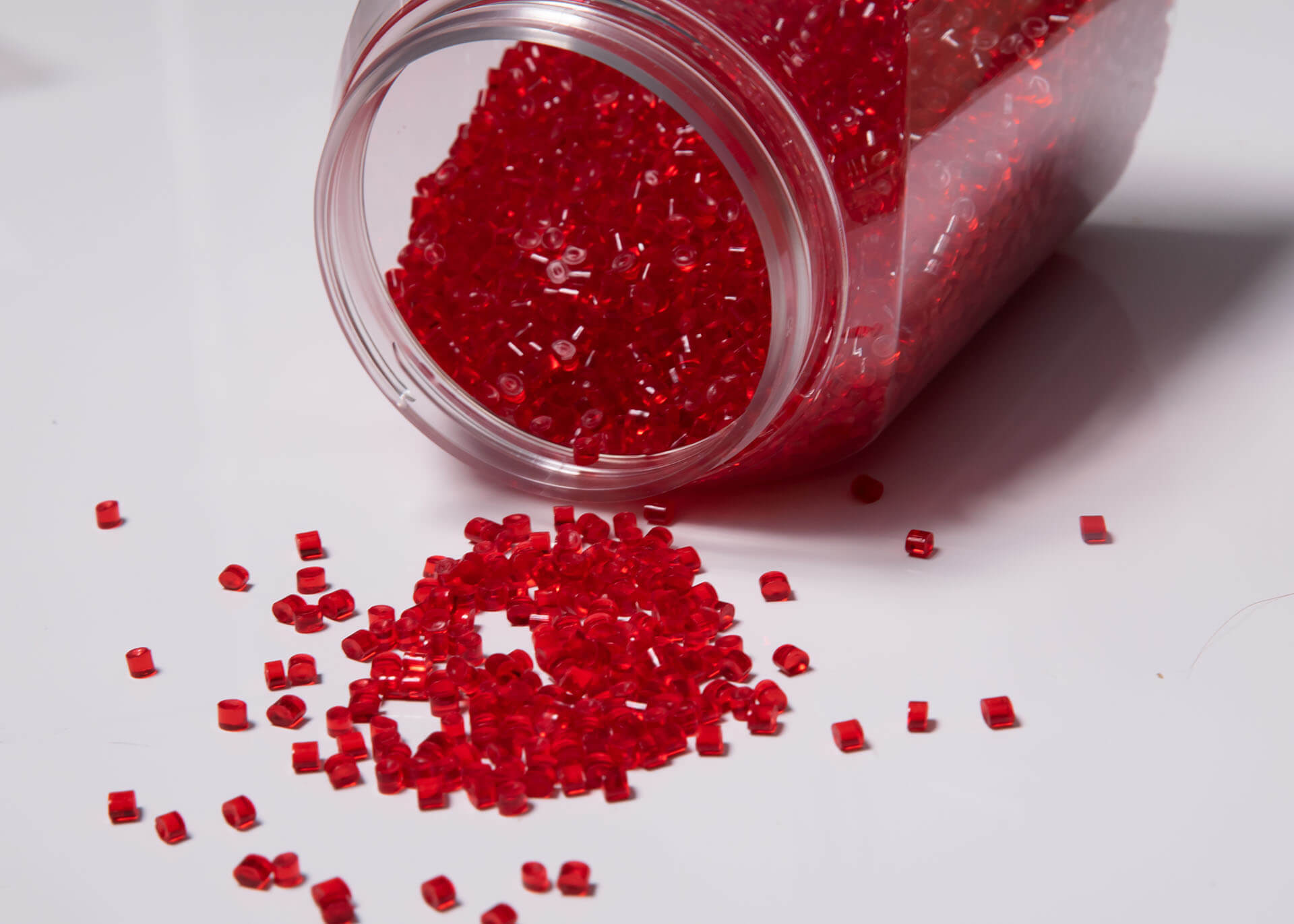
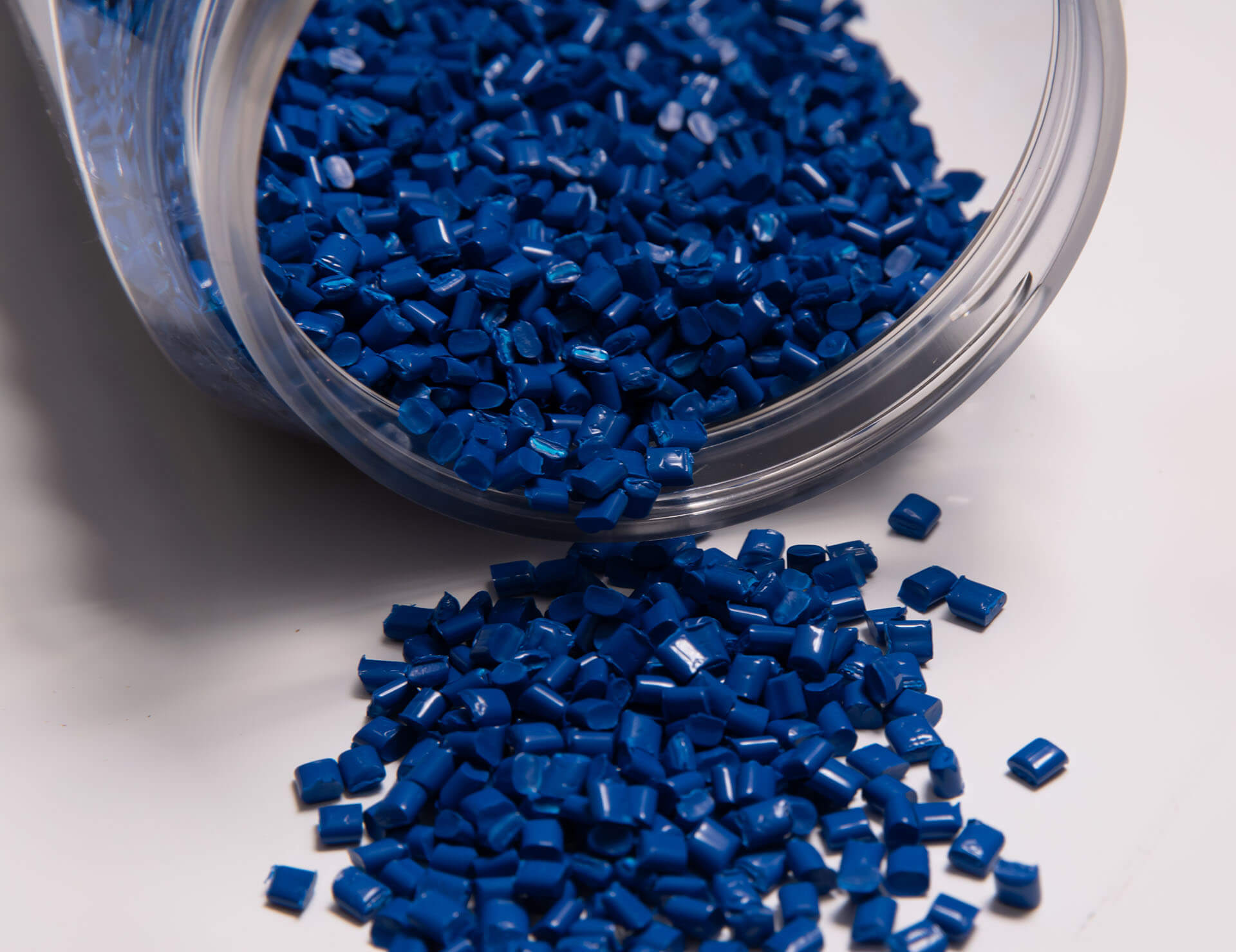
PA: Polyamide (nylon) is a tough and relatively hard material. Its properties include chemical and abrasion resistance as well as low shrinkage and warp. Nylon plastic resins provide superior wear resistance, and excellent temperature and impact properties, but does absorb water. PA nylon is often used for power tool casings, curtain rails, bearings, gear components, and other automotive parts and industrial components.
PMMA: Polymethyl Methacrylate (acrylic) is stiff, durable, and hard. It can be polished to a sheen, which is why it is often used for signage, aircraft fuselage, windows, bathroom sinks, and bathtubs.
PVC: Polyvinyl Chloride is a tough and durable, strong and rigid material with good chemical resistance to a variety of acids and bases, though some solvents and chlorinated hydrocarbons may damage it. PVC is often used for pipes, flooring, cabinets, toys, and general household and industrial fittings.
PS: Polystyrene is a light, stiff, hard, brittle, waterproof material used mainly for rigid packaging and merchandising applications, including a variation called HIPS (high impact polystyrene) that provides tough, low-cost performance when highly customizable surfaces are needed.
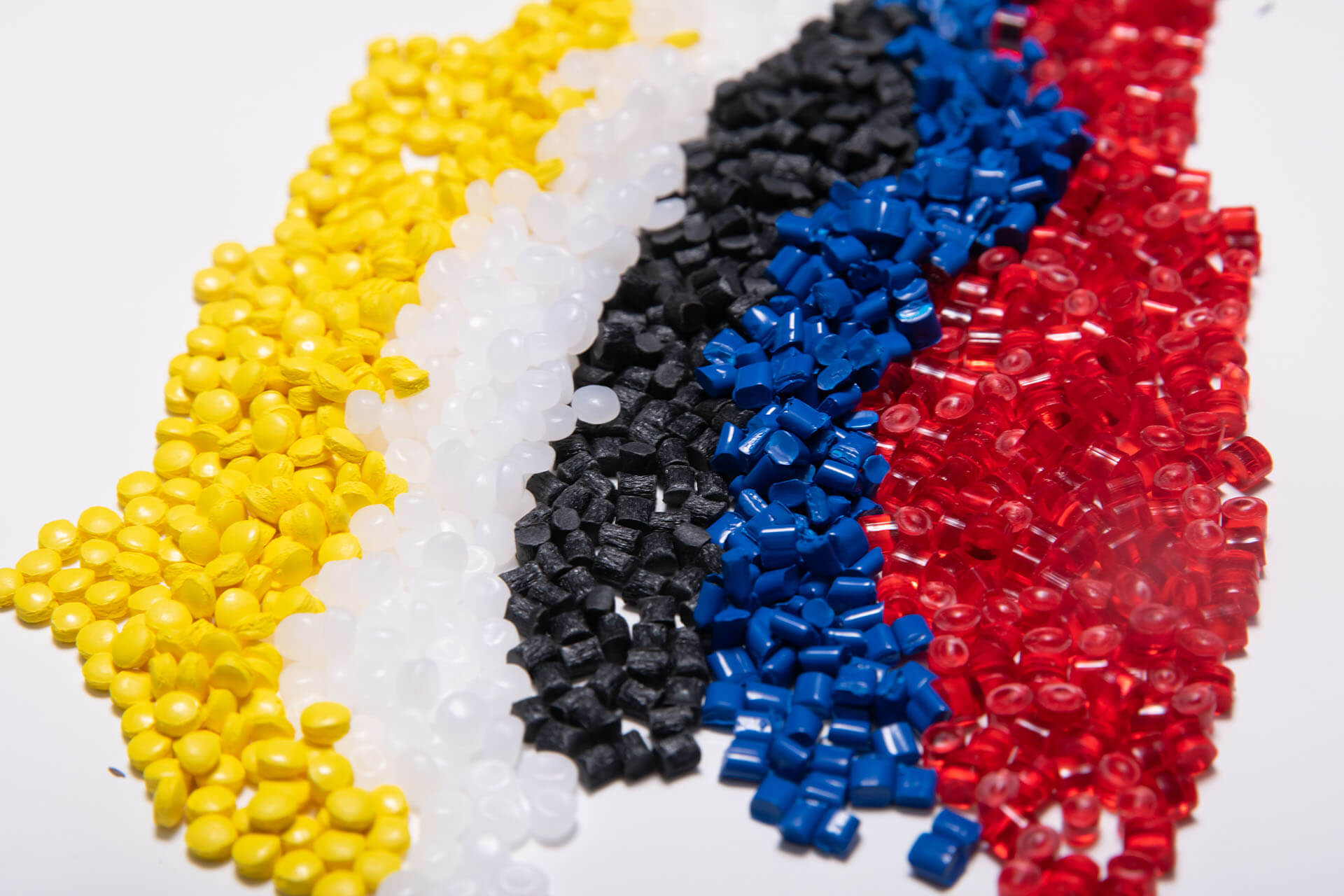

PTFE: Polytetrafluoroethylene (Teflon) is a very strong and flexible material used for non-stick cooking utensils, machine components, gears, and gaskets.
PBT: Polybutylene terephthalate is resistant to solvents and shrinkage while being strong. It is very resistant to both wear and ultraviolet light discoloration. PBT is often used for housings in electrical engineering, automotive construction (plug connectors), and in household goods such as showerheads and irons.
PPS: Polyphenylene sulfide is a high-performance thermoplastic known for its high maximum service temperature of 424°F (218°C) and the metallic sound it makes when struck. In addition to high heat resistance, it is also resistance to chemicals (acids and solvents), ultraviolet light, and abrasion. Other properties include dimensional stability and electrical insulation. These characteristics make polyphenylene sulfide a viable alternative to metal in many automotive parts, appliances, electronics, and other applications.
PEI: Polyetherimide is another amorphous resin offering excellent heat resistance (up to 422°F or 217°C) and strength, along with good chemical resistance, which is why it is often used in aerospace industry applications. PEI is often used to make reusable medical devices such as stopcocks, instrument trays, sterilization trays, pipettes, and dental devices. In electrical and electronics applications, it can be used for connectors, enclosures, and reflectors. For the automotive industry it’s good for headlight and fog light reflectors, as well as lightbulb sockets. PEI is good for household goods including microwavable bowls, cooking utensils, ovenware, food trays, and steam insert pans.
POM: Polyoxymethylene or acetal is a material that offers good surface lubricity and chemical solvent resistance along with good dimensional stability and resistance to abrasion, heat, water absorption, and creep. The FDA considers it good for food and beverage applications, but it’s also used in mechanical (gears and bearings), automotive, and household applications, including toy parts. However, it is not appropriate in high-heat environments.
When it’s time to engage in the design, prototyping, and production of your company’s next high-quality plastic product, part, or component, Global Plastics is ready to partner with you to help manage the project from start to finish. Learn more by getting in touch with us using the contact us form on our website.